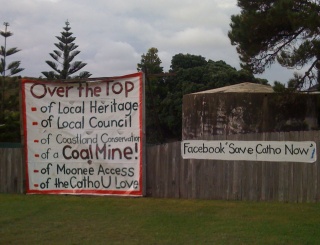NSW Labor is on the nose with voters, like never before. In October, according to Newspoll, it became the most unpopular ALP government there has ever been in Australia, with only 23% support. When Labor lost government in Victoria last year, it suffered a uniform swing of about 6%. In NSW, election analysts are predicting double that, or more.
NSW Labor is shipping water so rapidly that the rodents are trampling over each other to get off. Twenty-some MPs have announced that they will not stand at the next state election, in March, and countless staffers, advisers, in-laws and other hangers-on have already or are currently heading through the revolving door into corporate pay-offs for their past and future services.
There are many and varied reasons for the ALP’s approaching electoral disaster. A great many of them can be loosely grouped as people who have discovered through experience that Labor is no better than the Liberals in general, and that, if it is better in particular instances, there are others where it can be even worse. The more spectacular of these experiences are things like the government’s flogging off of billions of dollars worth of public assets for a fraction of their value. But there are also smaller, less publicised, scams that are equally revealing of the ALP’s real character. Repeated across the state over the past 16 years, they must be responsible for a huge share of the voters who have decided that almost any change must be an improvement.
I am personally familiar with one of these instances because members of my wife’s family have for four decades had houses in the small coastal village of Catherine Hill Bay. A former coal-mining town of about 100 houses in two separate sections, it has both natural beauty and historic heritage value. Last November, the entire village was officially listed on the NSW Heritage Register; it has been listed by the National Trust as an urban conservation area since 1983. Its beach is popular with visitors from the Hunter, the Central Coast and further afield. The state government’s planning department, in a list of more than 90 locations for housing, listed Catherine Hill Bay as the second least suitable for development.
Despite this, the area is threatened with two massive developments that between them could swamp the existing village and the surrounding bush with a 1000 additional houses. The plans were rejected by two councils (Catherine Hill Bay is under the Lake Macquarie City Council, but until a few years ago, part of the village was under the Wyong Council). The developers (who just happen to be major donors to the ALP) appealed to the Land and Environment Court, and lost.
The government’s planning minister, Frank Sartor, then took control of approval of the project using the notorious Part 3A amendments to the Environmental Planning and Assessment Act. Sartor signed a memorandum of understanding promising to approve development if the developers gave the state some (relatively low value) land for conservation in another part of the state. Sartor’s approval under Part 3A was challenged in the Land and Environment Court, which on August 31, 2009, ruled that the approval was “void and of no effect”, calling the deal with the developers a “land-bribe”.
Nevertheless, the developers still plan to proceed, because the ALP government has rezoned the developers’ land from “conservation and coastal acquisition” to “residential”!
The experience demonstrates something not only about the ALP but also about how “the system” is totally rigged in favour of the wealthy. The community of Catherine Hill Bay has for years been “playing by the rules”, and by the rules, it has won every time. But in reality its victories have been repeatedly overruled by the state, which changes the rules whenever the capitalists order it to.
This is why none of the hard-won gains of working people are really secure, regardless of whether the ALP or the Coalition – or anyone else – is elected to government. A working people’s government is needed to abolish the whole huge system that protects capitalist property and replace it with a system in which ordinary people and their environment come first.

